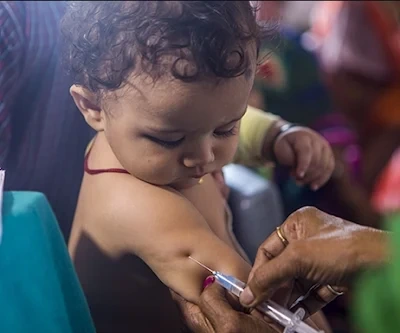India recorded 1.44 million children who did not receive even a single dose of routine vaccination in 2023, making it the country with the second highest number of “zero-dose” children after Nigeria, according to a new global study published in The Lancet.
The study, conducted by the Global Burden of Disease Study Vaccine Coverage Collaborators, highlights that eight countries — Nigeria, India, Ethiopia, the Democratic Republic of Congo, Somalia, Sudan, Indonesia, and Brazil — account for nearly half of the world’s unvaccinated children.
Nigeria topped the list with 2.5 million unvaccinated children, followed by India (1.44 million), the Democratic Republic of Congo (882,000), Ethiopia (782,000), Somalia (710,000), Sudan (627,000), Indonesia (538,000), and Brazil (452,000). The report emphasizes “persistent inequities” in global vaccine coverage.
Under India’s Universal Immunisation Programme, 12 vaccines are provided free of cost to protect against 12 preventable diseases. The country’s national target for 2030 is to achieve at least 90% coverage with life-course vaccines, including the diphtheria-tetanus-pertussis (DTaP) vaccine, two doses of measles vaccine, and the pneumococcal vaccine. So far, only 18 out of 204 countries have achieved this benchmark.
The report also noted a dramatic 75% decline in routine childhood vaccinations globally, from 58.8 million in 1980 to just 14.7 million in 2019 — even before the COVID-19 pandemic. The pandemic further worsened the situation, with vaccination rates plummeting in 2020 and still not recovering to pre-pandemic levels as of 2023.
South Asia and sub-Saharan Africa continue to face the biggest challenges in immunisation. Measles vaccine coverage alone declined in 100 out of 204 countries between 2010 and 2019, according to the report.
The study calls for urgent global investment in health assistance, estimating a requirement of approximately $3.9 billion to strengthen routine immunisation coverage and address vaccine inequities worldwide.


